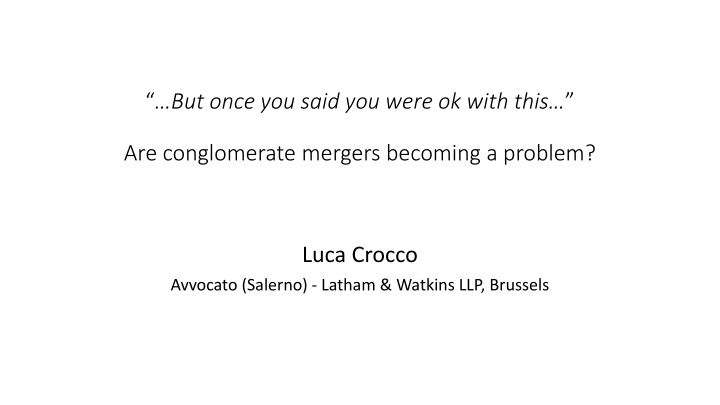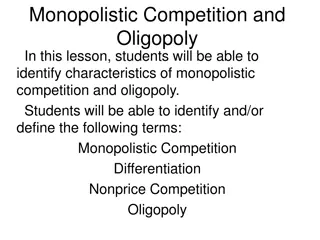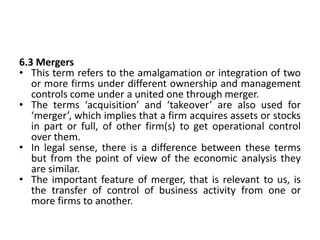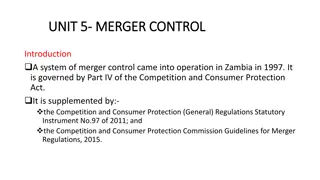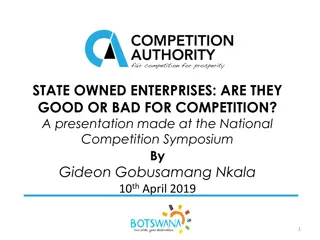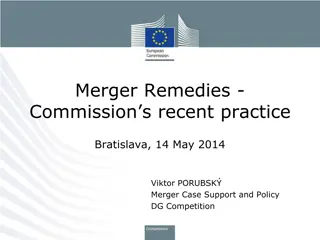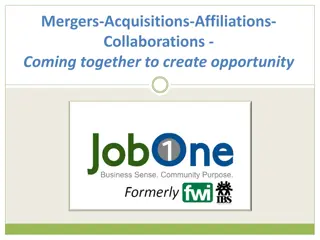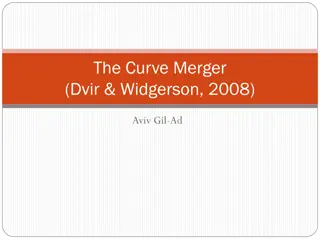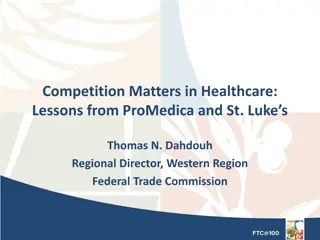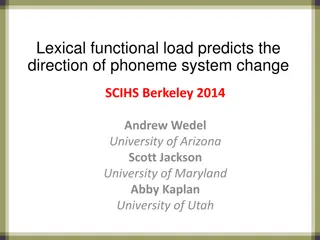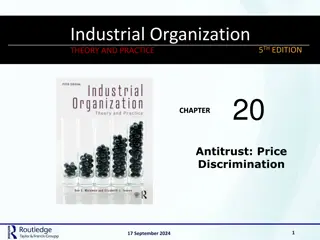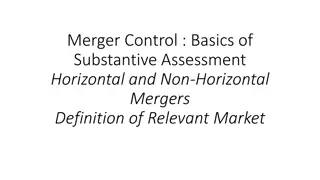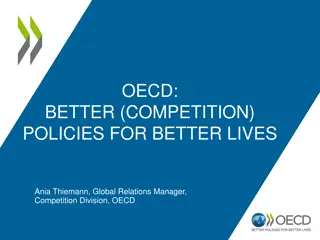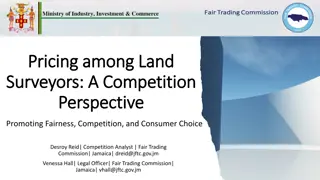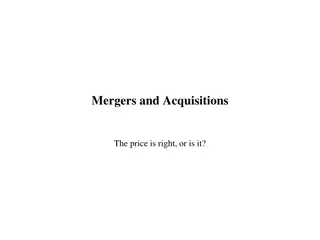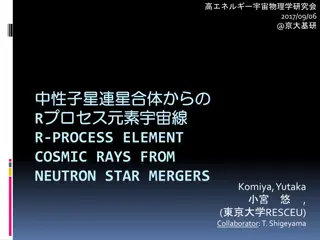Analysis of Conglomerate Mergers and Competition Concerns in Recent Cases
The analysis delves into the increasing trend of conglomerate mergers and potential competition issues in recent cases like Qualcomm/NXP, Luxottica/Essilor, and Bayer/Monsanto. It examines bundling strategies, interoperability challenges, and leveraging of data to understand the impact on market competition and consumer choice.
Download Presentation

Please find below an Image/Link to download the presentation.
The content on the website is provided AS IS for your information and personal use only. It may not be sold, licensed, or shared on other websites without obtaining consent from the author.If you encounter any issues during the download, it is possible that the publisher has removed the file from their server.
You are allowed to download the files provided on this website for personal or commercial use, subject to the condition that they are used lawfully. All files are the property of their respective owners.
The content on the website is provided AS IS for your information and personal use only. It may not be sold, licensed, or shared on other websites without obtaining consent from the author.
E N D
Presentation Transcript
But once you said you were ok with this Are conglomerate mergers becoming a problem? Luca Crocco Avvocato (Salerno) - Latham & Watkins LLP, Brussels
2017: the year of conglomerate effects? Currently in Phase II: Qualcomm/NXP: two different bundling theories (third ToH seems like a filler ) Luxottica/Essilor: classic bundling is the only ToH (no interoperability) Bayer/Monsanto: bundling is one of the concerns (but three horizontal ToH)
I am pretty sure you said you were ok with this GE/Honeywell and Tetra Laval/Sidel prohibitions based (mainly) on conglomerate issues Annulled by GC in 2003 and 2005 - bar for conglomerate theories of harm set very high EC s Non-Horizontal Merger Guidelines (2008) in the majority of circumstances [ ] no competition problems in certain specific cases there may be harm to competition. In short: bundling is rarely a structural issue, Article 102 can deal with future conduct
Well, I tried to tell you but you did not listen Warning shot: Intel/McAfee Phase I conditional clearance in 2011 It all goes quiet until March 2016, when, in close succession: Dentsply/Sirona Phase I conditional clearance Worldline/Equens/Paysquare - Phase I conditional clearance Microsoft/LinkedIn - Phase I conditional clearance Broadcom/Brocade Phase I conditional clearance
What are you trying to tell me? Dentsply/Sirona: equipment and consumable (degradation of interoperability) Worldline/Equens: software and machine (bundling) Microsoft/LinkedIn: operating system and App (interoperability/pre-installation) Broadcom/Brocade: switch chip and interface card (degradation of interoperability) Luxottica/Essilor: eyewear and ophthalmic lenses (bundling) Bayer/Monsanto: pesticides and seeds (bundling and leveraging of data) Qualcomm/NXP: baseband chipsets and NFC/SEs IC; NFC IP and Qualcomm s IP (bundling)
What? A coincidence?! Not a coincidence: 4 conditional Phase I and three Phase II in 18 months Substantive and procedural causes Substantive: focus on preserving customer choice e.g. degradation of interoperability Procedural: Difficulty in processing well timed (as soon as the clock starts ) complaints Is pre-notification effective? Fear of litigation Unlikely to go away in the near term prepare for more conglomerate fun!
